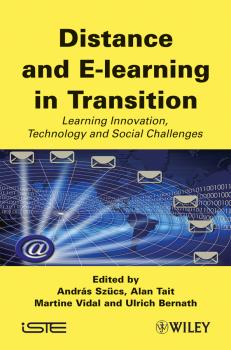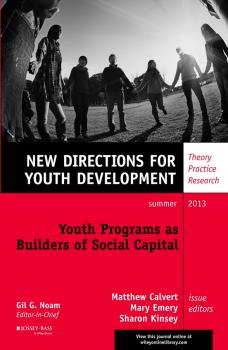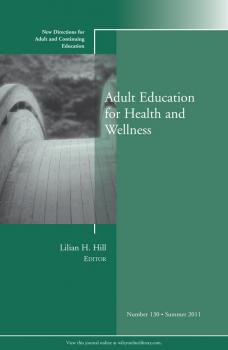Прочая образовательная литература
Различные книги в жанре Прочая образовательная литератураComputational Spectroscopy. Methods, Experiments and Applications
Unique in its comprehensive coverage of not only theoretical methods but also applications in computational spectroscopy, this ready reference and handbook compiles the developments made over the last few years, from single molecule studies to the simulation of clusters and the solid state, from organic molecules to complex inorganic systems and from basic research to commercial applications in the area of environment relevance. In so doing, it covers a multitude of apparatus-driven technologies, starting with the common and traditional spectroscopic methods, more recent developments (THz), as well as rather unusual methodologies and systems, such as the prediction of parity violation, rare gas HI complexes or theoretical spectroscopy of the transition state. With its summarized results of so many different disciplines, this timely book will be of interest to newcomers to this hot topic while equally informing experts about developments in neighboring fields.
Rethinking Undergraduate Business Education. Liberal Learning for the Profession
Business is the largest undergraduate major in the United States and still growing. This reality, along with the immense power of the business sector and its significance for national and global well-being, makes quality education critical not only for the students themselves but also for the public good. The Carnegie Foundation for the Advancement of Teaching's national study of undergraduate business education found that most undergraduate programs are too narrow, failing to challenge students to question assumptions, think creatively, or understand the place of business in larger institutional contexts. Rethinking Undergraduate Business Education examines these limitations and describes the efforts of a diverse set of institutions to address them by integrating the best elements of liberal arts learning with business curriculum to help students develop wise, ethically grounded professional judgment.
Distance and E-learning in Transition. Learning Innovation, Technology and Social Challenges
The rushed development of information and communication technologies and their impact on the world of learning in the last decade have profoundly changed the paradigms, scenarios and values at all levels of education. The professionalization of tools and practices, in addition to the consolidation of academic and practical knowledge, has been a major continuing issue throughout these years. The annual conferences of the largest European professional community in distance and e-learning have been setting the landmarks in this process. The selection from this unique knowledge pool demonstrates the deepening and consolidation of knowledge and experience. This book presents the developments in the field of open, distance and e-learning, through new technologies, methodologies and tools, which have profoundly changed the paradigms, scenarios and values at all levels of education over the last decade.
Physikalische Chemie. für Nebenfächler und Fachschüler
Kompakt und »verdammt clever« auf den Punkt gebracht – In einfachen Worten und unter Rückgriff auf Alltagsphänomene werden die Grundlagen der Physikalischen Chemie erarbeitet. Zahlreiche einprägsame Abbildungen, Merksätze, Begriffsdefinitionen und Erläuterungen ermöglichen einen leicht verständlichen Zugang zu grundlegenden Themen der Physikalischen Chemie. Alle wichtigen Gleichungen werden in ihrer Bedeutung erklärt und anhand von Rechenbeispielen eingeübt. Der Stoffumfang ist für alle naturwissenschaftlichen und technischen Fächer geeignet, die Physikalische Chemie als Nebenfach oder als Teil einer Ausbildung in allgemeiner Chemie vorsehen. Aufgrund des Praxisbezugs ist das Werk auch für die Verwendung in beruflichen Schulen bestens geeignet. Mit dem Blick aufs Wesentliche gerichtet, werden die Grundlagen der physikalischen Chemie in kompakter und leicht nachvollziehbarer Form vermittelt. Dabei unterstützen besondere Textelemente Ihren Lernerfolg: * Für die inhaltliche Orientierung sorgen optisch hervorgehobene Schlüsselthemen am Kapitelanfang. * Das Wichtigste wird kurz und prägnant in Definitionen und Merksätzen zusammengefasst. * Beispiele helfen beim Anwenden des Lernstoffs. * Die Formelsammlung am Ende eines jeden Kapitels verschafft einen schnellen Überblick über die wichtigsten Zusammenhänge. * Zu jedem Thema gibt es Verständnisfragen und Aufgaben mit Lösungen, die beim eigenständigen Überprüfen des Gelernten helfen.
Modern Synthetic Methods in Carbohydrate Chemistry. From Monosaccharides to Complex Glycoconjugates
The fields of glycochemistry and glycoscience are rich and varied and where much can be learned from Nature. As Nature is not always able to produce carbohydrates in quantities useful for not only in research but also as therapeutic agents, new ways need to be found to optimize the yield. This book presents an overview of the latest developments in the field of carbohydrates, ranging from de-novo approaches via cyclodextrin chemistry to the synthesis of such highly complex glycoconjugates as glycosphingolipids and GPI anchors. The main emphasis remains on the synthetic aspects making the book an excellent source of information for those already involved in carbohydrate chemistry, as well as for those organic chemists who are beginners in this field. Equally of interest to synthetic chemists, as well as medicinal chemists and biochemists.
Ultrafast Lasers Based on Quantum Dot Structures. Physics and Devices
In this monograph, the authors address the physics and engineering together with the latest achievements of efficient and compact ultrafast lasers based on novel quantum-dot structures and devices. Their approach encompasses a broad range of laser systems, while taking into consideration not only the physical and experimental aspects but also the much needed modeling tools, thus providing a holistic understanding of this hot topic.
Youth Programs as Builders of Social Capital. New Directions for Youth Development, Number 138
This volume builds understanding of practices in youth and community development that create or build social capital assets at the individual, group, and community levels. The authors explore whether programs contribute to the development of social capital at the individual and community scales, thereby fostering and enhancing positive youth development as well as community development. It includes articles on defining and measuring social capital through instruments designed to document impact and also to engage program participants. The authors then discuss program practices that build social capital in a wide range of youth development settings, from community-based service-learning to 4-H community clubs. Finally, they focus on building social capital in particular contexts, including work in rural communities with the most vulnerable youth. The volume is designed to help practitioners: Refine their dual focus on youth and community development Clarify constructs that help translate the public value of positive youth development to community stakeholders Provide examples of practices that link youth and youth programs more intentionally to the social relationships that knit communities together. This is the 138th volume of New Directions for Youth Development, the Jossey-Bass quarterly report series dedicated to bringing together everyone concerned with helping young people, including scholars, practitioners, and people from different disciplines and professions.
Adult Education for Health and Wellness. New Directions for Adult and Continuing Education, Number 130
This volume addresses the relationship of adult education and health from different perspectives. One task of adulthood is caring for one's health and, for many, caring for the health of children, a partner or spouse, and/or aging parents. Changes in health or the desire for improved health often prompt the need for individuals to learn–and adult education can play a vital role in enabling this learning. Editor Lilian H. Hill, associate professor of adult education at the University of Southern Mississippi, and contributing authors assemble a comprehensive review of the critical issues involved including How adults learn while coping with chronic illness Health education within adult literacy, adult basic education, and English as a Second Language classes Approahces to help adults evaluate and learn from online information The influence of globalism on health and more. Concluding with Hill's own argument that health is a social justice issue, the volume illustrates how adult educators need to be involved in health education because they have valuable skills and knowledge to contribute, and because it is a meaningful arena in which to demonstrate the field's commitment to equity and social justice. This is the 130th volume of the Jossey-Bass quarterly report series New Directions for Adult and Continuing Education. Noted for its depth of coverage, New Directions for Adult and Continuing Education is an indispensable series that explores issues of common interest to instructors, administrators, counselors, and policymakers in a broad range of adult and continuing education settings, such as colleges and universities, extension programs, businesses, libraries, and museums.
Der HPLC-Experte. Möglichkeiten und Grenzen der modernen HPLC
Der rasanten Entwicklung auf dem Gebiet der HPLC wird mit diesem Buch Rechnung getragen: Von Gradientenoptimierung uber Kopplungs- und 2D-Techniken bis zu Dokumentation und Informationsbeschaffung – aktuell und kompakt geschrieben von Praktikern fur Praktiker. Inhalt: 1 LC/MS-Kopplung 1.1 Stand der Technik in der LC/MS-Kopplung 1.2 Technische Aspekte und Fallstricke der LC/MS-Kopplung 1.3 LC/MS-Kopplung – ein praktisches Beispiel aus der Ionenchromatographie 2 HPLC-GC-Kopplung in der Praxis; Theorie, Applikationsbeispiele und Ausblick 3 Optimisierungsstrategien in der RP-HPLC 4 Der Gradient in der RP-Chromatographie 4.1 Aspekte der Gradienten-Optimierung 4.2 Vorhersagen von Gradienten 5 Vergleich und Auswahl von modernen HPLC-Saulen 6 Trenntechniken in der Biochromatographie 7 Moderne HPLC-Softwareprogramme – Eigenschaften, Vergleich, Ausblick 8 Moglichkeiten der «richtigen» Integration heute 9 HPLC im reglementierten Bereich 9.1 Intelligente Dokumentationen 9.2 Tipps fur eine gelungene FDA-Inspektion 10 Effiziente Informationsbeschaffung im Zeitalter von Web 2.0 am Beispiel der HPLC 11 Trends in der Detektionstechnik
The Mobile Academy. mLearning for Higher Education
A fundamental revolution in higher education is being sparked by the ubiquity of mobile devices. The opportunity is ripe for institutions, instructors, and instructional designers to take advantage of mobile technology to enhance the learning experience. The Mobile Academy is a guide for systematically integrating mobile devices into higher education courses and other academic and student support services in order to facilitate learning outcomes and student success. It covers a wealth of topics, including the use of mobile devices as applied to administrative services, classroom content, assessment, communication, and what's to come in the future. «In The Mobile Academy Clark Quinn gives aspiring learning technologists a crash course in what it will take to harness the power and potential of mobile learning in higher educational settings. He has given us a comprehensive, engaging guide for creating mobile learning solutions that inspire anytime, anywhere, and on whatever device one chooses.» —Ellen Wagner, partner and senior analyst, Sage Road Solutions LLC; executive director WCET «If you are a faculty member, instructional support staff, or an administrator at a university or a two-year college, you must read and understand this book. From ideas on interactivity and engagement through mLearning, to conducting an environmental scan, to dealing with policy issues, this book provides the foundation upon which to build for the future—the future of mLearning.» —Karl M. Kapp, professor of instructional technology, Bloomsburg University, Bloomsburg, Pennsylvania; author, Gadgets, Games and Gizmos for Learning and Learning in 3D «In The Mobile Academy, Clark Quinn provides a sensible theoretical and practical foundation that will help higher education organizations to develop their own strategies for providing mobile services for learning and student support. From designers to educators to administrators, this is the guide to for you to get 'mobilized.'» —Alan Levine, cogdogblog.com









